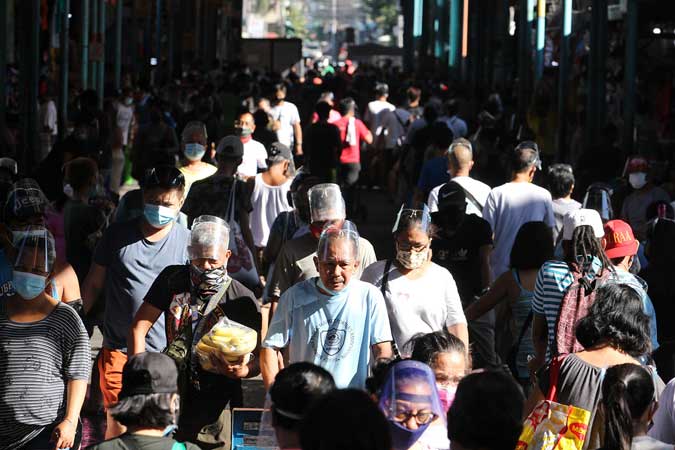Gov’t eases rules for fully vaccinated people

QUARANTINE and travel protocols for fully-vaccinated individuals have been eased, based on a new resolution approved by the task force handling the country’s coronavirus pandemic response.
In a resolution approved on July 2, the task force shortened the quarantine period for fully vaccinated individuals who are exposed to probable and confirmed coronavirus cases, Presidential Spokesperson Herminio L. Roque, Jr. said in a statement on Sunday.
“Fully vaccinated individuals who are close contacts of probable and confirmed COVID-19 (coronavirus disease 2019) cases may undergo a shortened seven-day quarantine period only if they remain asymptomatic for the duration of the seven-day period,” he said.
Mr. Roque said intrazonal travel for fully vaccinated individuals is subject to the presentation of a coronavirus vaccination card issued by a legitimate establishment, or a certificate of quarantine completion showing the holder’s vaccination status as may be issued by the Bureau of Quarantine.
Travelers within the country are still required to undergo health and exposure screening upon arrival in the local government of destination, he said.
SENIOR CITIZENS
Mr. Roque said intrazonal movement of fully vaccinated senior citizens within areas under a general community quarantine and a modified lockdown “shall continue to be allowed.”
A fully vaccinated individual is someone who has “more than or equal to two weeks after having received the second dose (of) a two-dose vaccine, or more than or equal to 2 weeks after having received a single-dose vaccine,” the Palace official said.
A fully vaccinated individual must be administered with vaccines that are included in the Emergency Use Authorization List or Compassionate Special Permit issued by the Philippine Food and Drug Administration or Emergency Use Listing of the World Health Organization, he said.
Latest available data from the task force, citing records from the Department of Health (DoH), show more than 10 million coronavirus vaccine doses have been administered as of June 27.
Of the total, 7.5 million were first shots.
Fully vaccinated individuals consist of more than 1.1 million health workers, 672,602 seniors, 710,846 seriously ill people, and 12,340 essential workers.
The Philippines aims to inoculate at least 500,000 people daily in the capital region Metro Manila, the neighboring provinces of Rizal, Bulacan, Cavite, and Laguna, and the urban areas of Metro Cebu and Metro Davao to achieve herd immunity by Nov. 27.
COVID-19 CASES
The DoH reported 5,966 coronavirus infections on Sunday, bringing the total to 1,436,369.
The death toll rose to 25,149 after 86 more patients died, while recoveries increased by 6,987 to 1,358, 512, it said in a bulletin.
There were 52,708 active cases, 91.1% of which were mild, 3.8% did not show symptoms, 1.4% were critical, 2.1% were severe and 1.54% were moderate.
The agency said 16 duplicates had been removed from the tally, nine of which were tagged as recoveries.
On the other hand, 130 recoveries were reclassified as active cases, while 27 cases tagged as recoveries were reclassified as deaths.
DoH said all laboratories were operational on July 2, while one laboratory failed to submit data.
Meanwhile, a senator is pushing for the inclusion of private groups in the Inter-Agency Task Force for the Management of Emerging Infectious Diseases.
Senator Francis N. Tolentino, in a statement on Sunday, said at least two groups should be represented in the policy-making body.
The Union of Local Authorities in the Philippines and the Philippine Chamber of Commerce and Industry (PCCI) must be included in the task force “to have a much synchronized approach in dealing with various policies” related to the country’s pandemic response and “to pave the way for a swift economic recovery,” he said. —Kyle Aristophere T. Atienza



